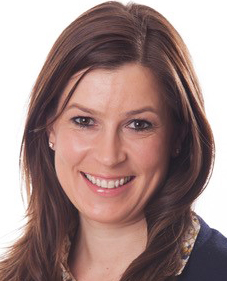New research from the University of British Columbia highlights how important it is for middle-aged and older athletes to get checked for cardiovascular risk factors, especially if they have high blood pressure, high cholesterol or a family history of cardiovascular disease.
The study, published in BMJ Open Sport and Exercise Medicine, followed 798 “masters athletes”— adults aged 35 and older who engage in moderate to vigorous physical activity at least three days a week. The participants included a range of athletes, from runners to cyclists, triathletes, rowers and hockey players.
Participants were asked a range of questions about their health, family history and physical activity levels. They also had their blood pressure checked and waist circumference measured. Some participants also took part in an exercise stress test. Those with abnormal results underwent further testing, such as a CT coronary angiogram, to determine if they had cardiovascular disease.
Significant cardiovascular disease — narrowed or blocked blood vessels that can lead to a heart attack, chest pain (angina) or stroke — was found in 11 per cent of them, and ten of them were found to have severe coronary artery disease (a blockage in their artery of 70 per cent or greater) despite not having any symptoms.
“We all know that exercise is good for us — it can help prevent a range of health problems and diseases, from cancer to depression,” said Barbara Morrison, the study’s lead author and a PhD student in Experimental Medicine. “However, even if you are really active, our findings suggest that you still can’t outrun your risk factors.”
This study’s findings build on previous research that found masters athletes have a higher incidence of cardiovascular disease than non-athletes of the same age with similar risk factors. However, previous research has also found that, compared to non-athletes, masters athletes typically have more calcified plaque, which is known to be more stable and less likely to cause a heart attack.
“This highlights the point that despite how many hours a week one spend’s on the bike or how fast a masters athlete’s 10k time is, you cannot ignore the importance of assessing and treating traditional cardiac risk factors like blood pressure and cholesterol,” said co-author James McKinney, an Assistant Clinical Professor in the Division of Cardiology. “It is to premature to recommend that every master’s athlete engaging in vigorous exercise undergo pre-participation screening. More research is needed assess the efficacy at reducing cardiac events and its cost-effectiveness. However, regardless of athlete status, people should have their cardiac risk factors assessed. If an athlete is experiencing cardiac symptoms (chest pain, shortness of breath, or palpitations) they should be formally assessed by a cardiologist to rule out underlying disease.”
While the findings may seem alarming, Morrison emphasized that it doesn’t mean masters athletes should stop exercising. She recommends people see their doctor for regular check-ups, including blood pressure and cholesterol monitoring, especially if they have a family history of heart attack or stroke.
“The good news is that cardiovascular disease is treatable,” she said. “Medication has been proven to reduce mortality risk, and even more so in people who are active.”
Moderation also is important, she added. “There is no evidence that pushing exercise to the limit will make you live longer or your heart stronger, but when taken to the extreme, it may have the potential to do harm,” said Morrison. “You should never push yourself so hard that you can’t exercise the next day.”
“It doesn’t mean exercise isn’t good for us, it doesn’t mean it’s not beneficial to exercise,” co-author Saul Isserow, a Clinical Assistant Professor in the Division of Cardiology, told Global News. “It just means you can’t negate all the other risk factors.”
The study — co-authored by researchers at SportsCardiologyBC, B.C. Children’s Hospital and Weill Cornell Medical College in New York — was funded by Mitacs Canada and the Canadian Institutes of Health Research.
